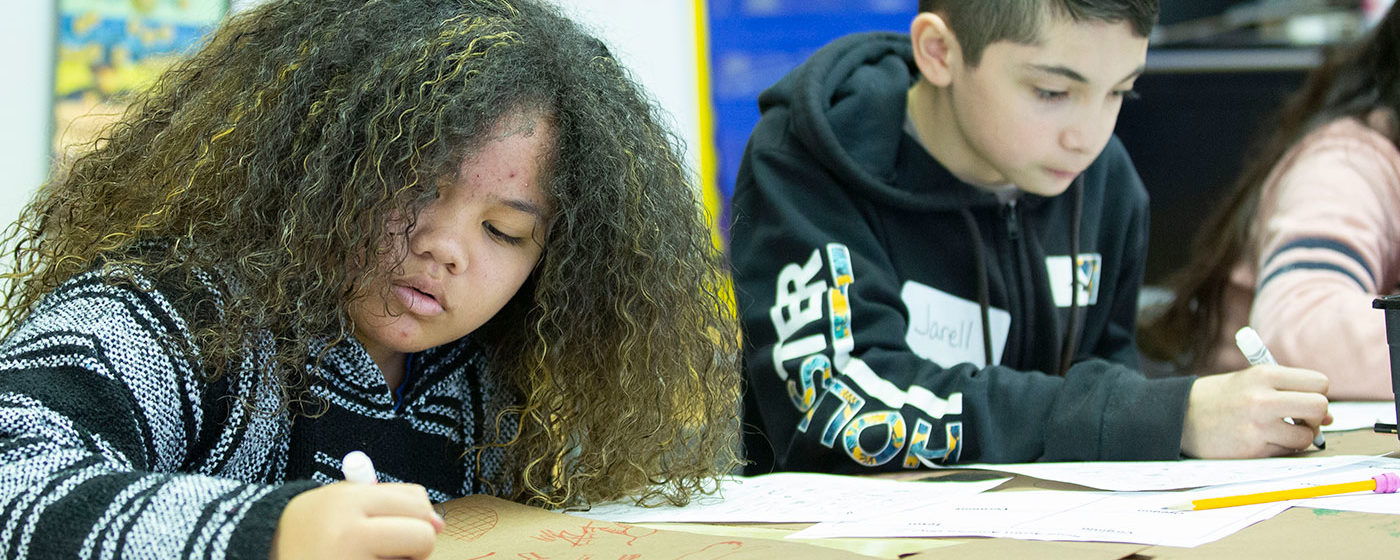
Data on Our Key Indicators
Tracking a Concrete Path to Success
United Way of Salt Lake, the organization behind the Promise Partnership, takes a “cradle-to-career” approach to improve outcomes for youth. The reason is simple: for children to succeed, they need a continuum of uninterrupted opportunities and support. This means each stage is a foundation for the opportunities that follow — children benefit from a concrete path to success. With a shared accountability mindset, United Way of Salt Lake tracks the well-being of children in our community over time in eight areas.
The Promise Partnership's Use of Key Indicators
School Districts in the Promise Partnership Region
- Canyons
- Davis
- Granite
- Ogden City
- Park City
- Salt Lake City
We publish our community’s key indicator results because we believe that, through publicly shared accountability and aligned action, we can do better. We pay particular attention to the socioeconomic and racial disparities that exist because eliminating gaps and achieving equitable outcomes in education is at the heart of our work.
The data below is intended to help us understand how far we’ve come and how far we are from achieving our shared goal of supporting 476,000 young people in the Promise Partnership region as they pursue their education, health, and economic mobility goals. It’s meant to shine a light on the work that still needs to be done and help everyone in our partnerships rally around the shared solutions of ensuring every child’s success, no matter their background. The data reflects the impact of our collective decisions and the way institutions and systems have been built over centuries.
The Promise Partnership has specific partnerships organized around and accountable to improving outcomes. COVID impacted our ability to measure outcomes, but the partnership is investigating new data sources that measure systems and ways to look at outcomes holistically. We are looking to bring in qualitative and observational data along with the voice of the community. We look forward to sharing this data.
State of Utah Proficiency Levels
We provide State of Utah proficiency levels for comparison. It is in no way a statement on the success or failure of a particular program, organization, sector, or population; but to be used as a representation of the systems that combine to fail minoritized members of our community. We hope you’ll use these numbers as a tool to learn more about the factors that create the inequities that we’re working together to address, and that you’ll then give, advocate, volunteer, or join one of our partnerships set on transforming systems for more equitable outcomes.
Kindergarten Readiness (Literacy)
63%
proficient in literacy
Kindergarten Readiness (Numeracy)
75%
proficient in numeracy
3rd Grade Reading
(2019)
74%
proficient in reading
3rd Grade English Language Arts (2019)
47%
proficient in ELA
8th Grade Math
(2019)
43%
proficient in math
College Readiness
(2019)
62%
with an ACT score of 18+
High School Graduation (2019)
87%
graduated
Mobility
(2019)
11%
of students are mobile
Source: USBE Data Reports
The dashboard below displays student enrollment characteristics. You can filter the data by school and district. We use this data to better understand the characteristics of students within the Promise Partnership Region.
The dashboard below displays student enrollment by grade. You can filter the data by school and district. We use this data to better understand the grade level of students in the Promise Partnership Region.
